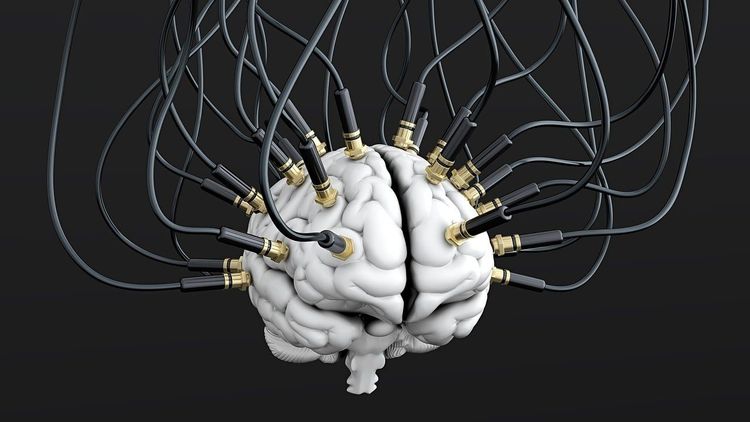The data center industry is experiencing a rapid expansion, driven by the surging demand for AI technologies. While these data centers are vital for AI infrastructure, providing the computational power necessary for modern applications, they come with significant challenges: high construction costs, operational expenses, and substantial energy consumption. Many startups are striving to enhance the efficiency and sustainability of data centers, but this task is complex.
The global data center market is projected to reach $301 billion, according to P&S Intelligence, and is anticipated to exceed $622.4 billion by 2030. Currently, data centers account for approximately 4% of the total energy consumption in the U.S., according to the Electric Power Research Institute, a figure expected to rise to 9% by 2030.
As the demand for data centers grows, leading companies are competing fiercely for energy resources. Recently, Microsoft secured a partnership with Constellation Energy to reactivate its nuclear reactor at Three Mile Island to address this rising demand.
Alongside the proliferation of data centers, numerous startups are emerging to tackle the industry's energy crisis and environmental impact. Companies like Incooling and Submer focus on optimizing existing data center technology to reduce heat output, while others, such as Phaidra, leverage software solutions for more efficient cooling management.
Some startups are reimagining the data center model entirely. Verrus is developing a “flexible” data center powered by microgrids, and Sage Geosystems is innovating with a method that utilizes hot pressurized water instead of natural gas for data center operations.
Sophie Bakalar, a partner at Collab Fund and an investor in Phaidra, noted a tenfold increase in entrepreneurs aiming to innovate in this sector over the past year, stating, “Whenever there is a significant imbalance in supply and demand, it naturally attracts entrepreneurs eager to offer solutions from various perspectives.”
However, the rapid expansion of data centers presents challenges for startups in gaining technology adoption.
Data Center Challenges
Francis O’Sullivan, a managing director at S2G Ventures, expressed concerns that the fast-paced growth of this sector might hinder startups in finding partners willing to experiment with their technologies. “These data centers are highly valuable, multi-billion-dollar assets that must perform reliably,” O’Sullivan stated. “As such, the data center industry is not a space for trial and error.”
The customer landscape for this type of technology is concentrated and therefore potentially harder to penetrate. Kristian Branaes, a partner at climate-focused VC Transition, highlighted that while they have identified promising companies in the data center tech arena, they struggle to find sufficient confidence to invest. Branaes is particularly concerned about scalability, noting a common climate tech challenge: having compelling technology without a clear path to generating venture-scale returns. He observed that relying on a handful of major clients like Microsoft and Apple may limit growth potential. “Building a large company focused solely on AWS or Microsoft is daunting,” he said. “Their procurement strategies are aggressive, and if you start generating substantial profits, they will either create in-house solutions or cut you out.”
Powering Forward
Despite some investor skepticism, many startups are gaining traction in the data center space. Upcoming regulations in Europe and states like Virginia—which are heavily populated with data centers—indicate that large customers will soon need to adopt new solutions, regardless of whether they are actively seeking them now.
Helena Samodurova, co-founder of Incooling in the Netherlands, launched her startup six years ago, prior to the current AI boom. While data center energy consumption was a concern then, the demand for Incooling’s solutions has shifted dramatically. “Years ago, awareness was low,” Samodurova explained. “Today, we have to educate fewer people about our technology, as interest is significantly heightened.”
Samodurova noted that interest is growing among potential customers and investors alike, emphasizing that the data center sector extends beyond just industry giants like Amazon and Google. “Every vehicle serves a different purpose, even if they all have four wheels,” she remarked. “We offer tailored cooling or computing solutions to address specific challenges.”
O’Sullivan pointed out that while some data center technologies may still be in the early stages, other companies that address energy supply challenges or improve grid efficiency present viable investment opportunities.
For many nascent startups in the data center space, it may be too early to see widespread adoption of their solutions. Many of these companies were established recently, and while the data center tech market is in its formative stages, the demand for infrastructure to support AI growth will continue escalating in the future.
“The urgency to innovate is evident,” Bakalar concluded. “Current growth far exceeds our existing infrastructure capabilities, necessitating the development of faster, more effective solutions for realizing the promise of AI.”







